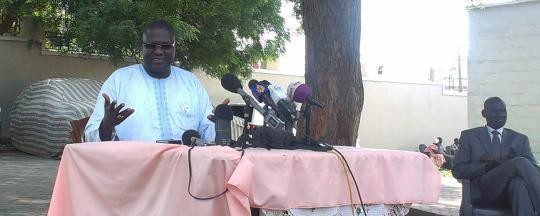A representative of South Sudanese opposition leader Riek Machar has blamed international mediators and the government for failure to start negotiations between the two sides since the start of the conflict more than two weeks ago.
Johannes Musa is a former senior political advisor in South Sudan’s Office of the President and now a member of Machar’s delegation to peace talks in Addis Ababa. He told Radio Tamazuj on Monday that there are three reasons the negotiations have not started.
First, he said, “the government failed to release the 11 detainees whom we requested to be released,” referring to SPLM politicians who were detained for their supposed allegiance to Machar.
Second, “the mediators insisted that negotiations should be held in Nairobi but we requested it to be in Addis Ababa, so we didn’t agree on the place up to now.”
Third, according to Musa the government did not comply with the cessation of hostilities which was requested by South Sudan’s African neighbors through the Inter-Governmental Authority on Development, IGAD.
“On the same date when the government was announcing cessation of hostilities they were attacking our military positions in Mayom County, so these are the three reasons which led to failure of the commencement of negotiations tomorrow,” he said on Monday.
“You can’t talk of cessation of hostilities and your forces are launching ground attack – actually what they mean by that is ‘cessation of media coverage’ of the issue (conflict) because you can’t contradict yourself by saying something and doing something else,” he added.
Musa also questioned the neutrality of IGAD after one of its members, Uganda, sent forces into South Sudan to support President Salva Kiir.
“The role of IGAD organization is unfortunately not neutral because they decided first to have a great tendency towards the government instead of a neutral body who can mediate talks between us and the government. And according to international standard and regulations, the issue is considered as an internal conflict which doesn’t require any intervention by another countries, because every country have its own problems,” he said.
File photo: Riek Machar speaks to reporters at his home in Juba after being ousted from his position as vice president, July 2013 (Radio Tamazuj)




